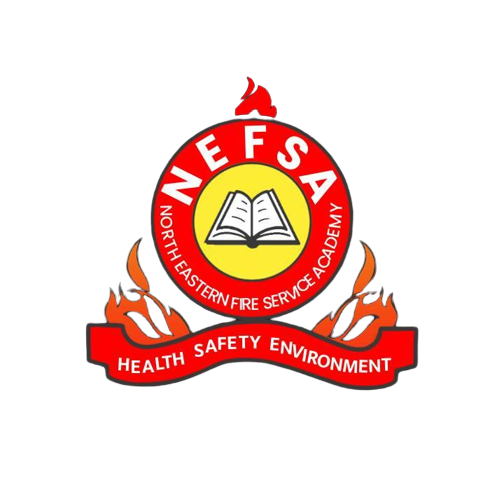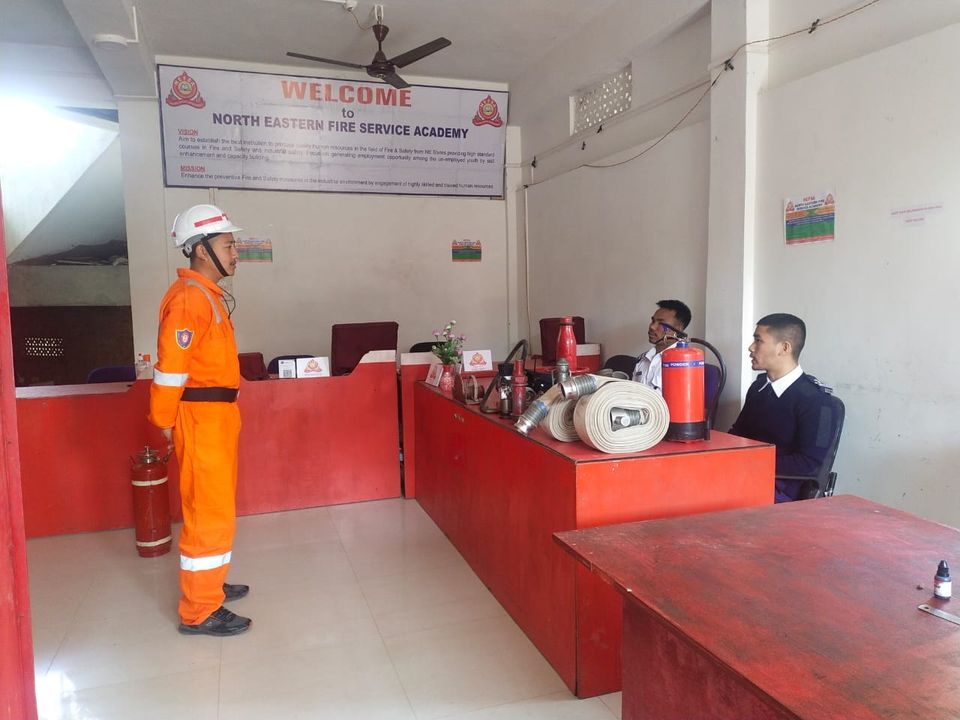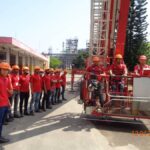As India and many other markets expand infrastructure and modernize regulations, trained fire safety and HSE professionals are becoming essential. The combination of updated building codes, rapid industrialization, public-sector staffing shortages, and investment in fire-protection systems has created both immediate hiring needs and long-term career opportunities for competent safety personnel.
1) Regulatory tightening and code updates are increasing compliance work
The National Building Code and related state-level rules have seen recent amendments and stronger enforcement drives; developers, facility managers and institutions must now meet more rigorous fire & life-safety requirements which directly increases demand for qualified fire safety officers, auditors, and compliance managers. Organizations are hiring to secure No Objection Certificates (NOCs), perform regular inspections, and carry out retrofits.
2) Rapid urbanization, infrastructure & construction growth create new roles
India’s growth in residential complexes, commercial real estate, logistics parks, and manufacturing facilities means more buildings to equip, inspect and maintain. Market research shows the fire-safety equipment and protection market is growing rapidly (multi-billion USD) producing jobs in design, installation, commissioning and ongoing maintenance of systems. That growth translates into demand for technicians, system specialists, and safety engineers.
3) Technology adoption smarter systems need trained operators
Modern fire-protection increasingly uses IoT sensors, smart suppression systems, advanced alarm & detection networks and centralized monitoring dashboards. These technologies require skilled personnel who understand both traditional firefighting and modern integrated systems — from commissioning to troubleshooting and data-driven preventive maintenance. Market forecasts highlight rising AI/IoT integration in fire protection.
4) Public fire services face staffing shortages private demand rises to fill gaps
Several city fire services report high vacancy rates and stretched manpower, prompting municipalities to expand hiring while private-sector employers (airports, hospitals, malls, industrial parks) onboard trained professionals to keep operations compliant and safe. The staffing shortfall in municipal fire departments increases reliance on professionally trained private fire & safety personnel and contracted emergency-response teams.
5) Industry sectors leading hiring in 2025
-
Construction & Real Estate: fire-NOC compliance, retrofits, and site safety officers.
-
Manufacturing & Process Industries (including Oil & Gas): process safety, firefighting systems, permit-to-work controls.
-
Facilities & FM Providers: malls, hospitals, hotels and IT parks require in-house safety teams.
-
Transport & Ports / Airports: ARFF (airport rescue & firefighting) and port fire services hire specialized firefighting personnel.
6) Job volumes & salary signals (what candidates can expect)
-
High openings: job portals and industry hiring boards list thousands of current safety-related openings across India and the Gulf, reflecting active demand.
-
Salary ranges: entry-level roles vary widely by employer and location; industry averages and reported figures suggest reasonable entry pay with scope to rise significantly for NEBOSH/CCO/advanced-certified candidates and for specialist roles in oil & gas or ARFF. (Salary sites and job boards show differing ranges—use local job listings for accurate city-level benchmarks.)
7) Certifications & skills that employers are actively seeking
To stand out in 2025, candidates should combine practical firefighting/response skills with regulatory and technical credentials:
-
Core certifications: NEBOSH IGC, Diploma in Fire & Safety, Fire Sub-Officer training, State Fire Services certifications.
-
Technical skills: hydrant & sprinkler systems, SCBA operation, gas/detector calibration, fire-alarm commissioning, and basic electrical/automation understanding for IoT systems.
-
Soft skills: incident investigation, permit-to-work management, audit reporting, and emergency planning. Practical drill leadership and strong communication skills are in demand.
8) Career paths & progression from technician to HSE leadership
Common ladders: Firefighter / Fire Safety Technician → Fire Safety Officer → HSE Executive / Safety Manager → HSE Head / Fire Safety Consultant. Specialist routes include ARFF Officer (airport), Process Safety Engineer (petrochemical), and Fire Protection System Designer (consultancy/engineering). Certifications plus 2–5 years of field experience accelerate promotion.
9) How training providers (like NEFSA) fit into the picture?
Fire-academies and practical training organisations that combine live drills, equipment handling, placement assistance and updated regulatory training are increasingly valuable. Employers look for hands-on experience (drills, SCBA usage, hydrant/riser maintenance) that reduces on-the-job training time and improves immediate deployability. NEFSA and similar academies that emphasise practicality and placement support are well-positioned to meet industry hiring needs.
10) What employers should budget for in 2025
-
Staff hiring & training budgets for safety officers and technicians.
-
Investment in upgraded fire detection & suppression systems and IoT monitoring.
-
Outsourced emergency-response contracts or FM agreements for gap filling where public services are understaffed.
Action plan
0–30 days: Get an industry-recognised basic certification (Fire & Safety diploma / NEBOSH foundation), update CV, and target local FM firms.
30–60 days: Attend practical drills, complete SCBA & extinguisher handling training, apply to >50 targeted jobs and use LinkedIn + job portals.
60–90 days: Seek internships or contract roles with FM providers, collect references, and pursue specialized certification for preferred sector (ARFF for airports, process safety for oil & gas).
FAQs (good for snippets)
Q: Are fire safety jobs stable in 2025?
A: Yes , regulatory compliance, infrastructure growth, and chronic public fire-service staffing gaps make fire safety roles relatively stable and in demand.
Q: Which certification matters most for a safety officer?
A: NEBOSH (for HSE roles) and recognised fire & safety diplomas or state fire-sub-officer certificates are highly valued. Specialized courses (ARFF, process-safety modules) add sector value.
Q: Can I move from firefighting to HSE management?
A: Yes , with 2–5 years of field experience and added certifications (NEBOSH, management courses) many professionals progress into HSE supervisory and managerial roles.
Conclusion
2025 is a strong hiring year for fire safety professionals. Regulatory changes, fast-growing built environment, newer smart-fire technologies, and staffing shortfalls in public services all point to continued demand. Candidates with hands-on training, up-to-date certifications, and technology literacy will find the best opportunities. Employers should proactively recruit, train, and invest in modern fire-protection capabilities to stay compliant and safe.
Sources:-
-
NEFSA — The Growing Demand for Fire Safety Professionals (NEFSA blog). nefsaindiablog.com
-
Bureau of Indian Standards / National Building Code updates (NBC, building & fire safety). Bureau of Indian Standards
-
TechSci Research — India Fire & Safety Equipment Market (market size & forecast). techsciresearch.com
-
Ken Research — India Fire Protection Market Outlook. kenresearch.com
-
Times of India — City fire services staffing shortages / local news on fire NOC trends. The Times of India+1
-
Job portals & listings (Indeed / LinkedIn) — evidence of active hiring for fire & safety roles. Indeed+1
-
Glassdoor / Salary sites — Fire Safety Officer salary signals & ranges. Glassdoor+1
-
Industry articles on career paths & demand (NIFS India, Eagle Learning, etc.). nifsindia.net+1
-
NEBOSH event & industry presence in India (NEBOSH India Energy Week). NEBOSH
Contact us today to know more about admissions, batch schedules, and course details.
Visit: www.nefsaindia.com
Location: Dibrugarh, Assam
For More Blogs:- Click here







